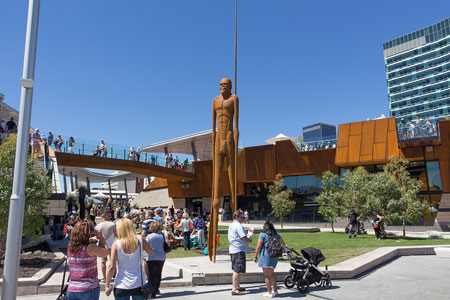City of Gosnells Turkish Translation Services
Perth Translation Services » Perth » City of Gosnells Translation Services » City of Gosnells Turkish Translation Service
City of Gosnells Turkish Translation Services
Get fast and professional translation services in City of Gosnells. Our Turkish translators provide translation of all types of documents. These include confidential legal, financial and migration document translations.
Upload Document For Translation

City of Gosnells
The City of Gosnells is a local government area in the southeastern suburbs of the Western Australian capital city of Perth, located northwest of Armadale and about 20 kilometres (12 mi) southeast of Perth's central business district. The City covers an area of 128 square kilometres (49.42 sq mi), much of which is state forest rising into the Darling Scarp to the east, and had a population of approximately 118,000 at the 2016 Census.
City of Gosnells History
The name Gosnells dates back to 1862 when Charles Gosnell who was the owner of London cosmetic company John Gosnell & Co., bought Canning location 16 from the Davis family who were the original grantees in 1829. While the purchase of the land was a personal investment by Charles Gosnell, when the land was sold to developers in 1903 the developers used the association to the well known cosmetic company, claiming it had bought the land because of its fertile soil to grow flowers for the manufacture of its perfume range. The abundance of the Arum Lily (Zantedeschia aethiopica) in the area and the marketing by the developers contributed to the myth about the Gosnell company, being so successful that the Gosnells railway station was constructed on the Armadale line in 1903.
Gosnells Road District was created out of the abolished Canning Road District on 1 July 1907. Industry in the form of brickworks were introduced to Beckenham in the early 1990s. Between 1912 and 1915 fruit fly wiped out nearly all of the stone fruit crops in the region and many farmers turned to dairying and market gardening. Irrigation was vital due to sandy, infertile soils of Canning Vale. In 1923, the City received land from Jandakot Road District when that entity was abolished. Significant development did not occur until the post-war years. The population grew from 7,400 in 1954 to about 11,000 in 1966, and then to 21,000 in 1970. On 1 July 1961, Gosnells Road District became a Shire following enactment of the Local Government Act 1960. On 1 July 1973 it became a Town and exactly four years later it attained City status.
City of Gosnells Suburbs
Beckenham, Canning Vale, Gosnells, Huntingdale, Kenwick, Langford, Maddington, Martin, Orange Grove, Southern River, ThornlieAbout the Turkish Language
Turkish is the most widely spoken of the Turkic languages, with around 10–15 million native speakers in Southeast Europe (mostly in East and Western Thrace) and 60–65 million native speakers in Western Asia (mostly in Anatolia).
Turkish as an official EU language, even though Turkey is not a member state.
The earliest known Old Turkic inscriptions are the three monumental Orkhon inscriptions found in modern Mongolia. Erected in honour of the prince Kul Tigin and his brother Emperor Bilge Khagan, these date back to the second Turk Kaghanate. After the discovery and excavation of these monuments and associated stone slabs by Russian archaeologists in the wider area surrounding the Orkhon Valley between 1889 and 1893, it became established that the language on the inscriptions was the Old Turkic language written using the Old Turkic alphabet, which has also been referred to as "Turkic runes" or "runiform" due to a superficial similarity to the Germanic runic alphabets.
With the Turkic expansion during Early Middle Ages (c. 6th–11th centuries), peoples speaking Turkic languages spread across Central Asia, covering a vast geographical region stretching from Siberia and to Europe and the Mediterranean. The Seljuqs of the Oghuz Turks, in particular, brought their language, Oghuz—the direct ancestor of today's Turkish language—into Anatolia during the 11th century. Also during the 11th century, an early linguist of the Turkic languages, Mahmud al-Kashgari from the Kara-Khanid Khanate, published the first comprehensive Turkic language dictionary and map of the geographical distribution of Turkic speakers in the Compendium of the Turkic Dialects (Ottoman Turkish: Divânü Lügati't-Türk).
City of Gosnells Turkish Translator Services
Turkish translator for certified translation services:
- Turkish driving license translation
- Turkish financial translation and bank statement translations
- Turkish birth certificate translation
- Turkish marriage certificate translation
- Turkish name-change certificate translation
- Turkish degree translation
- Turkish diploma translation
- Turkish school transcript translation
- Turkish passport translation
- Turkish police report translation
- Turkish police check translation
- Turkish personal letters and cards
- Turkish utility bill translations
- Turkish death certificate translation
Perth Translation provides fast and affordable Turkish translation services in the City of Gosnells for all types of personal documents by NAATI translators.
Languages Translated
- Arabic translation service
- Czech translation service
- Chinese translation service
- Croatian translation service
- Danish translation service
- Dutch translation service
- French translation service
- Finnish translation service
- Greek translation service

